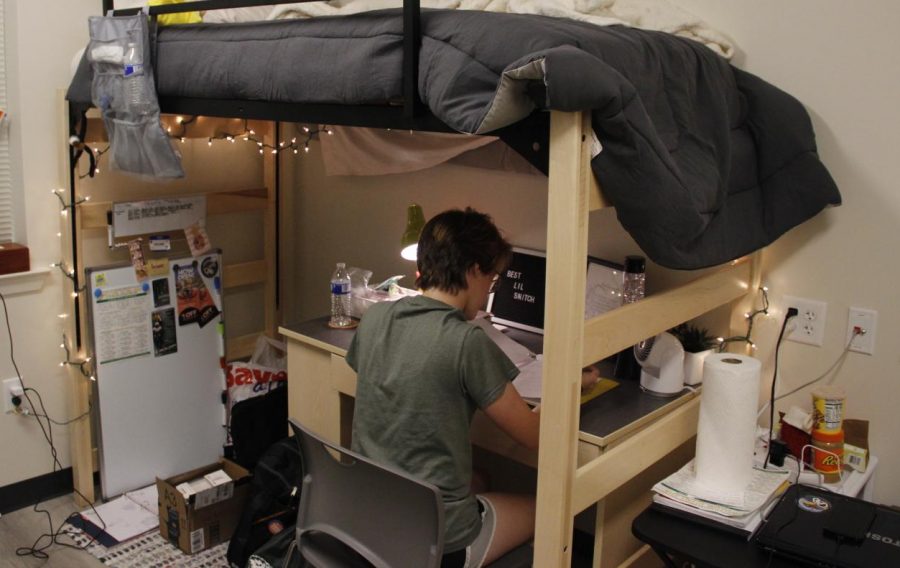Creating a productive study space
Time, location and a distraction-free space are three factors that contribute to an effective study environment. Some students prefer to study in groups at the library while others work by themselves in a dorm room. Marie Bernard, advisor at the Center for Student Excellence, suggests that students plan out times to study and use campus resources to their academic benefit.
Many can relate to the story of planning to have a study session in the living room but end up watching Netflix. Some students go to a nearby coffee shop to study but end up focusing on how the workers are making a special latte. Others might also start dozing off as they choose their comfortable bed to study. All these occurrences are quite common because as students, we fail to create an effective study space.
Knowing how to make the best use of our study time is important to achieve the academic goals each of us set for the upcoming semester. Here are some tips to help concentrate on the subject matter at hand:
1. Figure out what time works best to study: All of us have our own day-to-day patterns, and we know what time can be most productive. Choose the time accordingly. “We each have our own circadian rhythm,” said Marie Bernard, advisor at the Center for Student Excellence. “It is best to study when our bodies are alert.”
2. Get comfortable, but not too comfortable: Find a place that is comfortable to study. However, don’t choose places like your bed or couch where you will most likely fall asleep.
3. Keep yourself away from distractions: The main rule is to keep your phone away. One single notification beep can bring a bend in your path of a longer study session. “It needs to be a place free of distraction,” said Bernard. “If you find going to your dorm room ends up with you watching Netflix or falling asleep, then that is not the place for you to study.”
4. Have plenty of light: It is even better to study in natural light as it lifts the mood and increases focus.
5. Listen to music: Music without song lyrics can help you concentrate without distracting you with words.
6. Take an exercise break.
7. Be determined. Visualize the bigger picture.
“Make time for your physical and emotional well-being,” said Bernard. “Plan your study sessions, and stick to your plan. Be sure to visit your professors, and utilize all of the resources that are offered through campus. Make college an experience. Attend social, athletic and cultural events whenever your schedule allows.”
Your donation will support The Lion's Roar student journalists at Southeastern Louisiana University.
In addition, your contribution will allow us to cover our annual website hosting costs.
No gift is too small.

Prakriti Adhikari is an accounting major and an international student from Kathmandu, Nepal. Adhikari has been working with The Lion's Roar since Fall...







Online Jobs • Aug 22, 2022 at 7:46 am
Good job, keep it up..
Rockwide